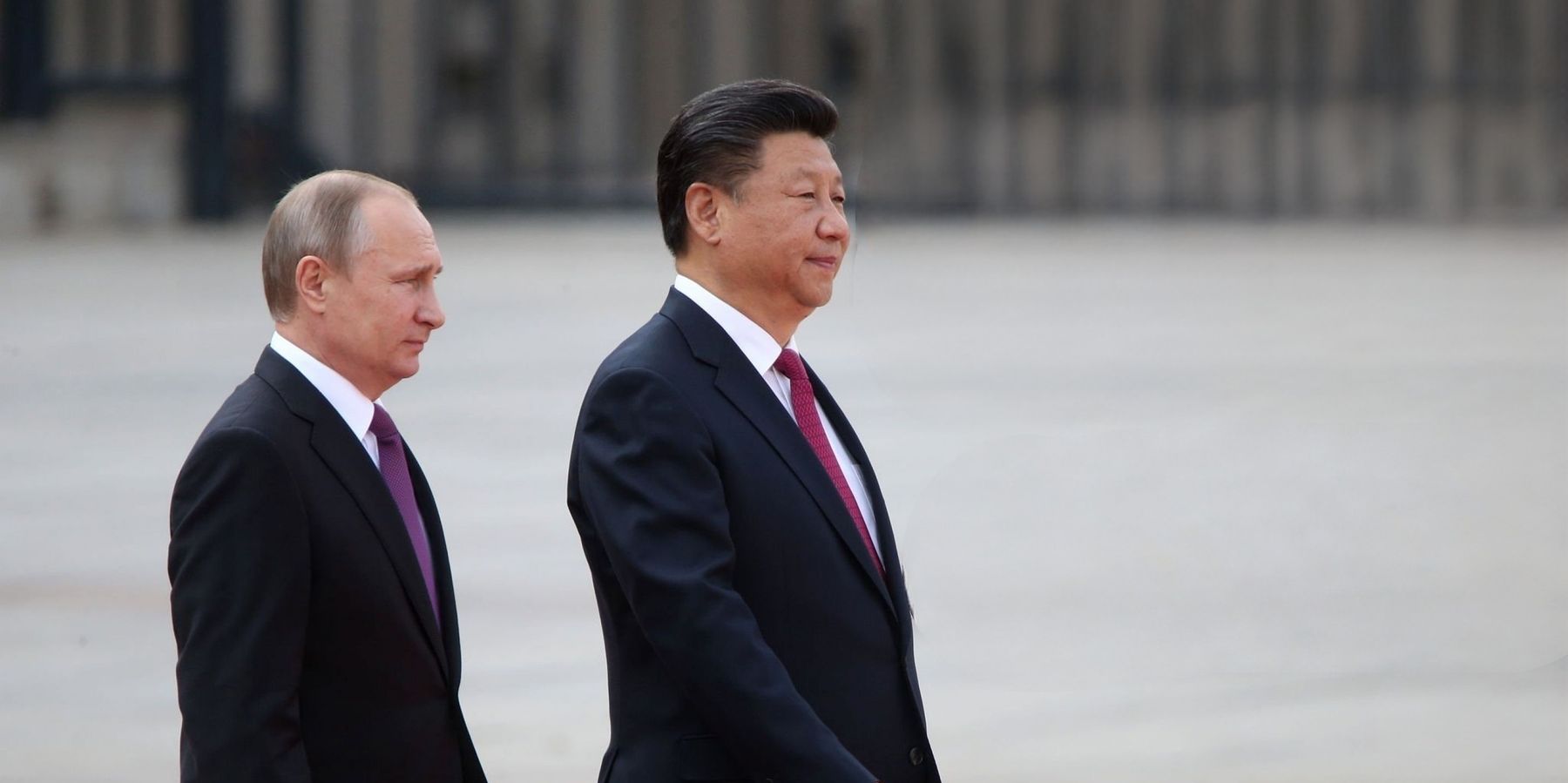Russia announced this week that its bilateral trade with China has almost completely moved away from using the U.S. dollar, highlighting the two countries’ commitment to reducing their reliance on the U.S.-led economic system.
Aside from reducing dependency on the Western-dominated global currency, these ‘de-dollarization’ efforts allow Russia and China to avoid the myriad sanctions now preventing Moscow from doing business on the international market.
Western sanctions have helped lead to a boom in trade between Moscow and Beijing since 2022, rising 26% to $240 billion this year. China has also become the world’s leading importer of Russian oil.
De-dollarization isn’t the only scheme Russia is deploying to avoid crushing sanctions. Russian officials announced last week at a United Nations meeting that the Kremlin is spending billions of dollars to dodge Western sanctions by developing new trade routes in Asia.
This plan includes two new transport corridors — one that would link Russia to Kyrgyzstan via the Caspian Sea, and another that would stretch from Belarus to Pakistan. The efforts build on previous plans to redirect trade, including the North-South Corridor, a railway route first conceived in 2000 that would connect Russia to the Indian Ocean via Iran.
After years of delays, Moscow loaned Tehran 1.3 billion euros last year to build its leg of the North-South route. Sergei Ivanov, Russia’s presidential envoy for environmental issues, said that the corridor gives Russia full access to the Persian Gulf, and that “no sanctions will affect it.” The newly announced routes would similarly allow Russia to bypass sanctions and access Asian markets.
Russia and Iran have also boosted their ability to transact with one another by linking their banking systems, as both face sanctions that limit their abilities to transact with the West.
The U.S. and European countries have heavily sanctioned Russia since its 2022 invasion of Ukraine, particularly hampering the Kremlin’s ability to export oil to the West and sell it at competitive market prices. If Russia transports goods through overland corridors that are outside of the jurisdiction of the sanctioning countries, it becomes much more difficult for Western powers to interdict, noted Markus Jaeger of the Atlantic Council.
“They want to reduce the dependency and vulnerability vis-a-vis unfriendly third parties,” Jaeger said.
But if history is any guide, Russia isn’t quite in the clear yet. Sanctions on Iran, including the maximum pressure sanctions imposed during the Trump administration, played a major role in slowing the development of the North-South route. Russia is now loaning money for construction to Iran and is expected to spend approximately $3.5 billion on the project by 2030, according to Russia’s Deputy Prime Minister Marat Khusnullin.
U.S. pressure has also complicated Russia’s economic rapprochement with China, which could face consequences from the West for its support of Moscow, according to Jaeger. He pointed to U.S. Secretary of State Antony Blinken’s planned visit to China this week, where he reportedly intends to warn Chinese President Xi Jinping that Washington is concerned about Beijing’s provision of aid to Russia’s military.
Jaeger said that, as China engages more economically with sanctioned countries or entities in Iran or Russia, the risk of becoming the target of European and American sanctions will increase.
“For the U.S., imposing secondary sanctions that affect Chinese entities is seen as a very antagonistic step by China, which risks leading to further tensions in U.S.-Chinese relations,” he said.
















